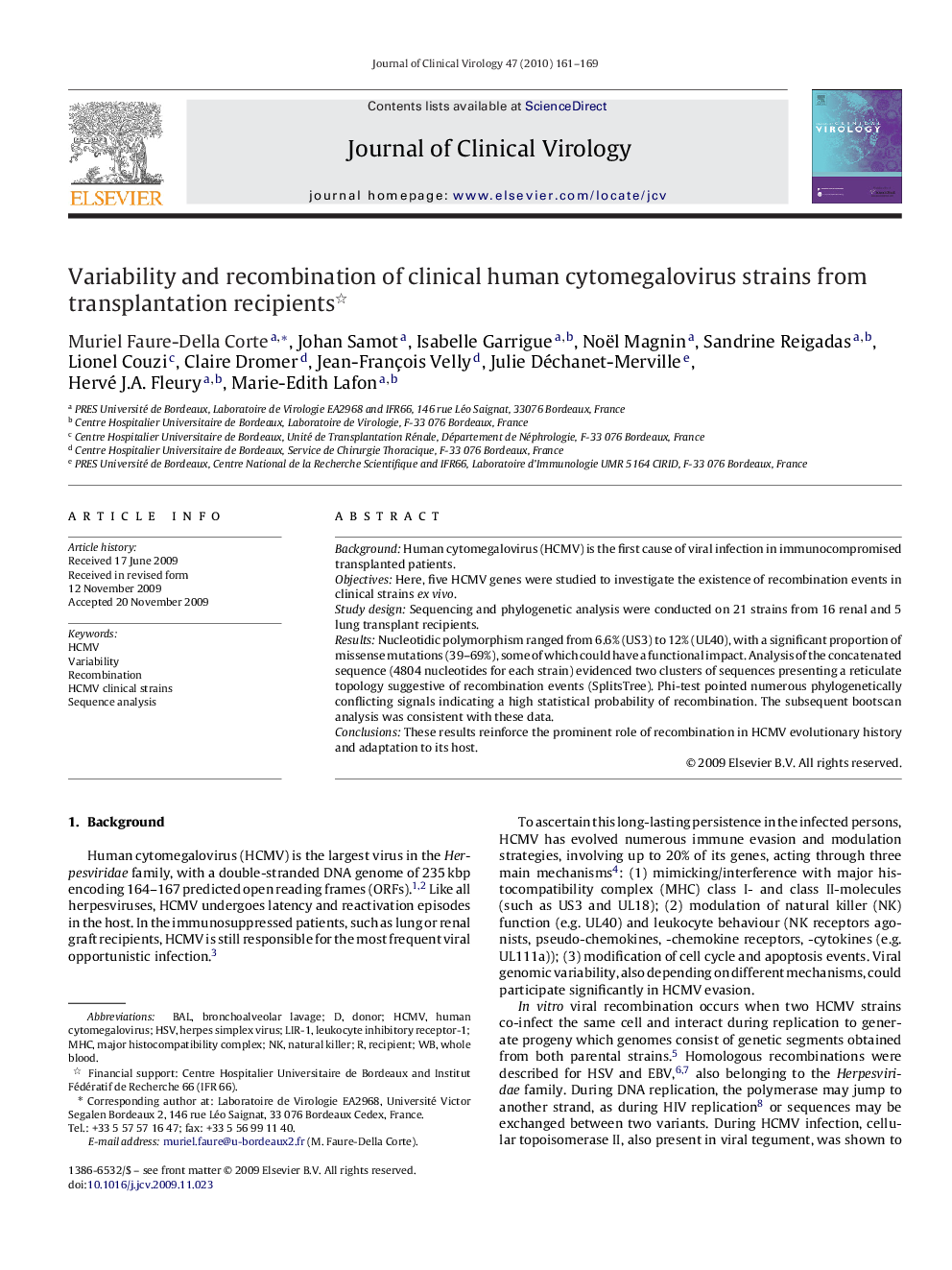| Article ID | Journal | Published Year | Pages | File Type |
|---|---|---|---|---|
| 3369936 | Journal of Clinical Virology | 2010 | 9 Pages |
BackgroundHuman cytomegalovirus (HCMV) is the first cause of viral infection in immunocompromised transplanted patients.ObjectivesHere, five HCMV genes were studied to investigate the existence of recombination events in clinical strains ex vivo.Study designSequencing and phylogenetic analysis were conducted on 21 strains from 16 renal and 5 lung transplant recipients.ResultsNucleotidic polymorphism ranged from 6.6% (US3) to 12% (UL40), with a significant proportion of missense mutations (39–69%), some of which could have a functional impact. Analysis of the concatenated sequence (4804 nucleotides for each strain) evidenced two clusters of sequences presenting a reticulate topology suggestive of recombination events (SplitsTree). Phi-test pointed numerous phylogenetically conflicting signals indicating a high statistical probability of recombination. The subsequent bootscan analysis was consistent with these data.ConclusionsThese results reinforce the prominent role of recombination in HCMV evolutionary history and adaptation to its host.
